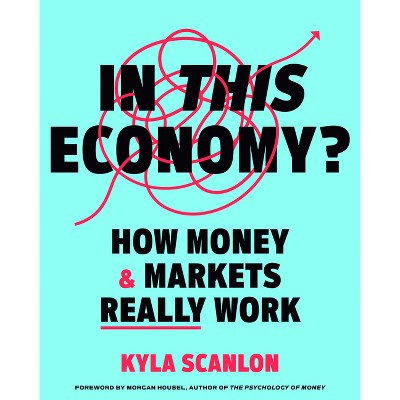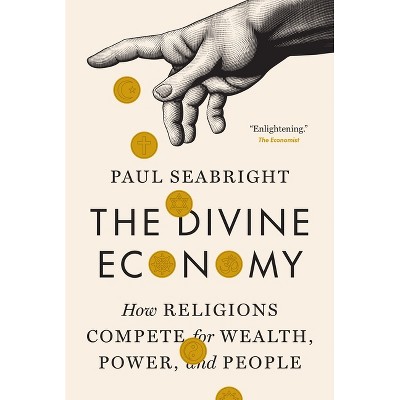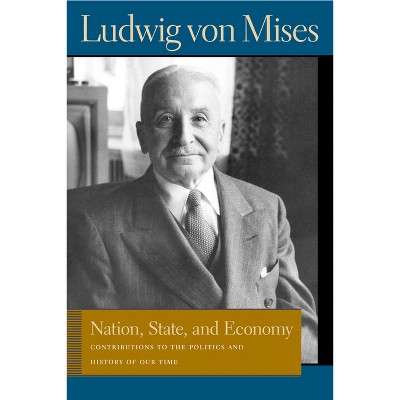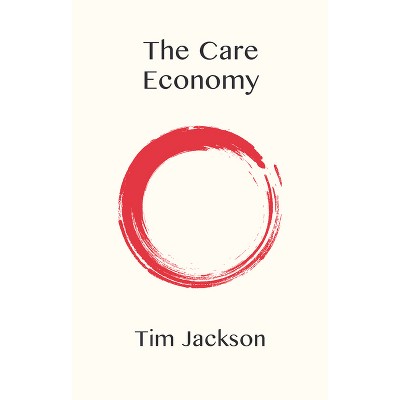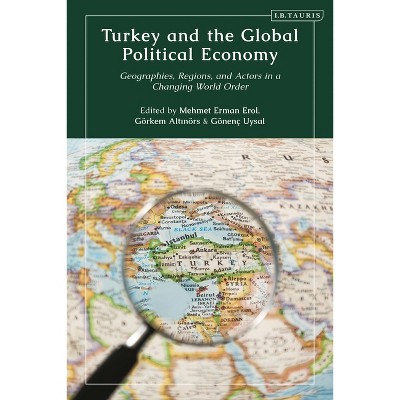Sponsored

The Solidarity Economy - by Tehila Sasson
$39.95
In Stock
Eligible for registries and wish lists
Sponsored
About this item
Highlights
- The untold story of the role of humanitarian NGOs in building the neoliberal order after empire After India gained independence in 1947, Britain reinvented its role in the global economy through nongovernmental aid organizations.
- About the Author: Tehila Sasson is assistant professor of history at Emory University.
- 320 Pages
- Political Science,
Description
About the Book
"The untold story of the role of humanitarian NGOs in building the neoliberal order after empire. After India gained independence in 1947, Britain reinvented its role in the global economy through nongovernmental aid organizations. Utilizing existing imperial networks and colonial bureaucracy, the nonprofit sector sought an ethical capitalism, one that would equalize relationships between British consumers and Third World producers as the age of empire was ending. The Solidarity Economy examines the role of nonstate actors in the major transformations of the world economy in the postwar era, showing how British NGOs charted a path to neoliberalism in their pursuit of ethical markets. Between the 1950s and 1990s, nonprofits sought to establish an alternative to Keynesianism through their welfare and development programs. Encouraging the fair trade of commodities and goods through microfinance, consumer boycotts, and corporate social responsibility, these programs emphasized decentralization, privatization, and entrepreneurship. Tehila Sasson tells the stories of the activists, economists, politicians, and businessmen who reimagined the marketplace as a workshop for global reform. She reveals how their ideas, though commonly associated with conservative neoliberal policies, were part of a nonprofit-driven endeavor by the liberal left to envision markets as autonomous and humanizing spaces, facilitating ethical relationships beyond the impersonal realm of the state. Drawing on dozens of newly available repositories from nongovernmental, international, national, and business archives, The Solidarity Economy reconstructs the political economy of these markets -- from handicrafts and sugar to tea and coffee -- shedding critical light on the postimperial origins of neoliberalism."--Book Synopsis
The untold story of the role of humanitarian NGOs in building the neoliberal order after empire
After India gained independence in 1947, Britain reinvented its role in the global economy through nongovernmental aid organizations. Utilizing existing imperial networks and colonial bureaucracy, the nonprofit sector sought an ethical capitalism, one that would equalize relationships between British consumers and Third World producers as the age of empire was ending. The Solidarity Economy examines the role of nonstate actors in the major transformations of the world economy in the postwar era, showing how British NGOs charted a path to neoliberalism in their pursuit of ethical markets. Between the 1950s and 1990s, nonprofits sought to establish an alternative to Keynesianism through their welfare and development programs. Encouraging the fair trade of commodities and goods through microfinance, consumer boycotts, and corporate social responsibility, these programs emphasized decentralization, privatization, and entrepreneurship. Tehila Sasson tells the stories of the activists, economists, politicians, and businessmen who reimagined the marketplace as a workshop for global reform. She reveals how their ideas, though commonly associated with conservative neoliberal policies, were part of a nonprofit-driven endeavor by the liberal left to envision markets as autonomous and humanizing spaces, facilitating ethical relationships beyond the impersonal realm of the state. Drawing on dozens of newly available repositories from nongovernmental, international, national, and business archives, The Solidarity Economy reconstructs the political economy of these markets--from handicrafts and sugar to tea and coffee--shedding critical light on the postimperial origins of neoliberalism.Review Quotes
"Bold and ambitious. . . . [The Solidarity Economy] illuminates, with particular sharpness, the British left's sustained engagement with the problem of economic inequality in the wake of empire."---Helen McCarthy, The Political Quarterly
"Provacative. . . . The Solidarity Economy traces the emergence of neoliberal thought to a surprising place: the universe of left-leaning reformers in postwar Britain, well before theneoliberal revolution under Margaret Thatcher."---Udi Greenberg, Boston Review
"Sasson's story is written for our times."---Susan Pedersen, London Review of Books
About the Author
Tehila Sasson is assistant professor of history at Emory University. Her writing has appeared in leading publications such as the American Historical Review, Past & Present, and Dissent.Dimensions (Overall): 9.3 Inches (H) x 6.3 Inches (W) x 1.3 Inches (D)
Weight: 1.55 Pounds
Suggested Age: 22 Years and Up
Number of Pages: 320
Genre: Political Science
Publisher: Princeton University Press
Format: Hardcover
Author: Tehila Sasson
Language: English
Street Date: May 28, 2024
TCIN: 89436758
UPC: 9780691250380
Item Number (DPCI): 247-28-4512
Origin: Made in the USA or Imported
If the item details aren’t accurate or complete, we want to know about it.
Shipping details
Estimated ship dimensions: 1.3 inches length x 6.3 inches width x 9.3 inches height
Estimated ship weight: 1.55 pounds
We regret that this item cannot be shipped to PO Boxes.
This item cannot be shipped to the following locations: American Samoa (see also separate entry under AS), Guam (see also separate entry under GU), Northern Mariana Islands, Puerto Rico (see also separate entry under PR), United States Minor Outlying Islands, Virgin Islands, U.S., APO/FPO
Return details
This item can be returned to any Target store or Target.com.
This item must be returned within 90 days of the date it was purchased in store, shipped, delivered by a Shipt shopper, or made ready for pickup.
See the return policy for complete information.






